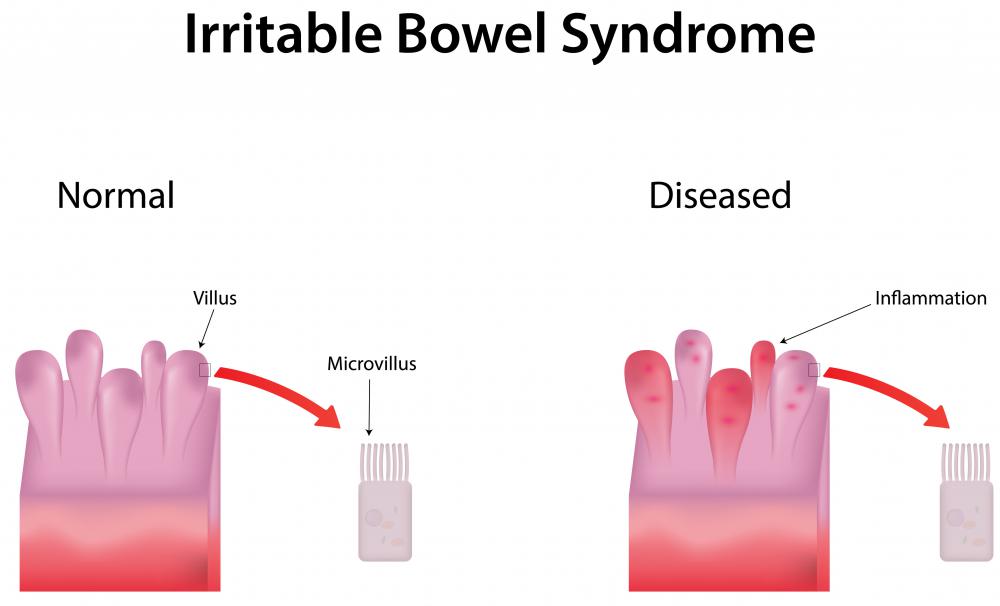At WiseGEEK, we're committed to delivering accurate, trustworthy information. Our expert-authored content is rigorously fact-checked and sourced from credible authorities. Discover how we uphold the highest standards in providing you with reliable knowledge.
What is the Connection Between Anxiety and IBS?
Scientist are not 100-percent sure of the ways anxiety and irritable bowel syndrome (IBS) are connected, but there is evidence that suggests the two are related. A significant percentage of individuals with IBS also have psychiatric conditions, such as panic disorder and post-traumatic stress disorder. Many suffer from social phobias and depression as well. Additionally, there is evidence that shows taking steps to reduce stress may also help a person with IBS to reduce his symptoms.
There are various theories that attempt to explain the relationship between anxiety and IBS. One of these theories is that anxiety is not capable of causing IBS. Instead, the idea is that people with IBS may be more likely to struggle with anxiety and other mental health issues such as stress and depression. Furthermore, it is also possible that anxiety forms a circular pattern with IBS symptoms. In such a case, anxiety may contribute to worsening symptoms, which in turn makes anxiety and other emotional problems worse.

Another theory about the connection between anxiety and IBS is that a person who is dealing with anxiety may be more aware of his body. As such, he may notice colon spasms more than other people might. Additionally, his anxiety may cause him to focus more on his symptoms, which may make them seem worse.
Most health experts agree that stress can have a detrimental effect on a person’s immune system. For this reason, one of the theories about the connection between anxiety and IBS is related to the effect stress may have on an IBS patient's immune system. The idea with this particular theory is that the immune system causes IBS; since stress and anxiety can impair the immune system, it may then indirectly cause IBS.

Regardless of exact details of the connection between anxiety and IBS symptoms, it is generally accepted that managing stress levels well may help a patient to be more comfortable and experience fewer IBS symptoms. To lower stress and anxiety levels, an IBS patient may do well to get plenty of exercise and sleep. Following a nutritious diet may help as well. Additionally, an IBS patient may help control his anxiety and stress by doing relaxation exercises, seeking mental health counseling, or even just taking more time to do the things he enjoys. When a person has an anxiety disorder, rather than occasional anxiety, medication may help as well.
AS FEATURED ON:
AS FEATURED ON:














Discuss this Article
Post your comments